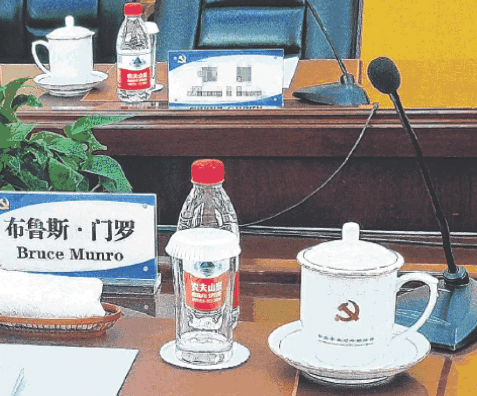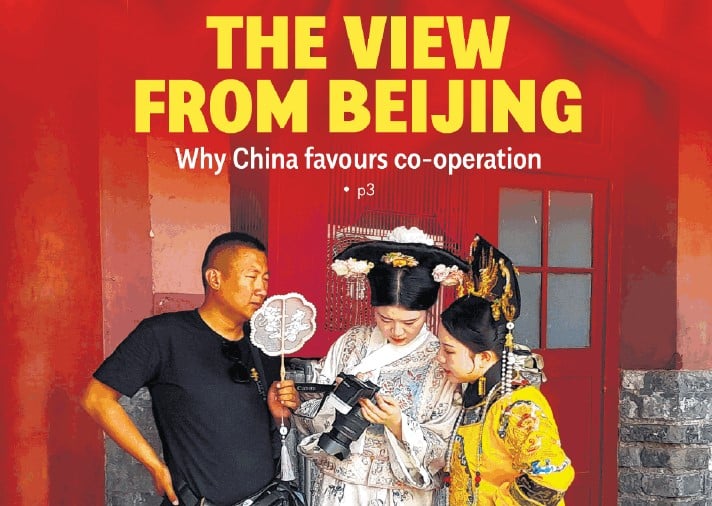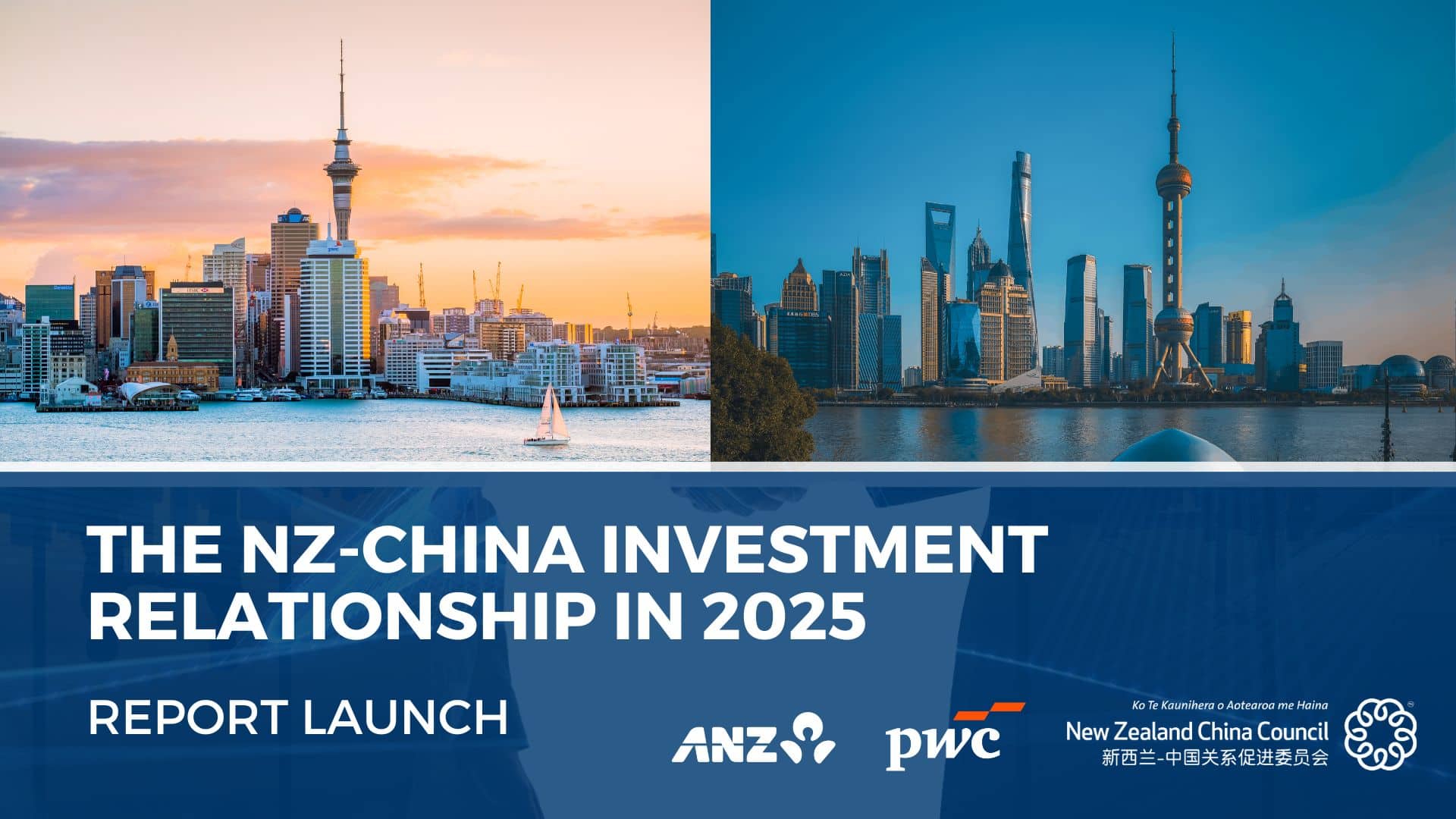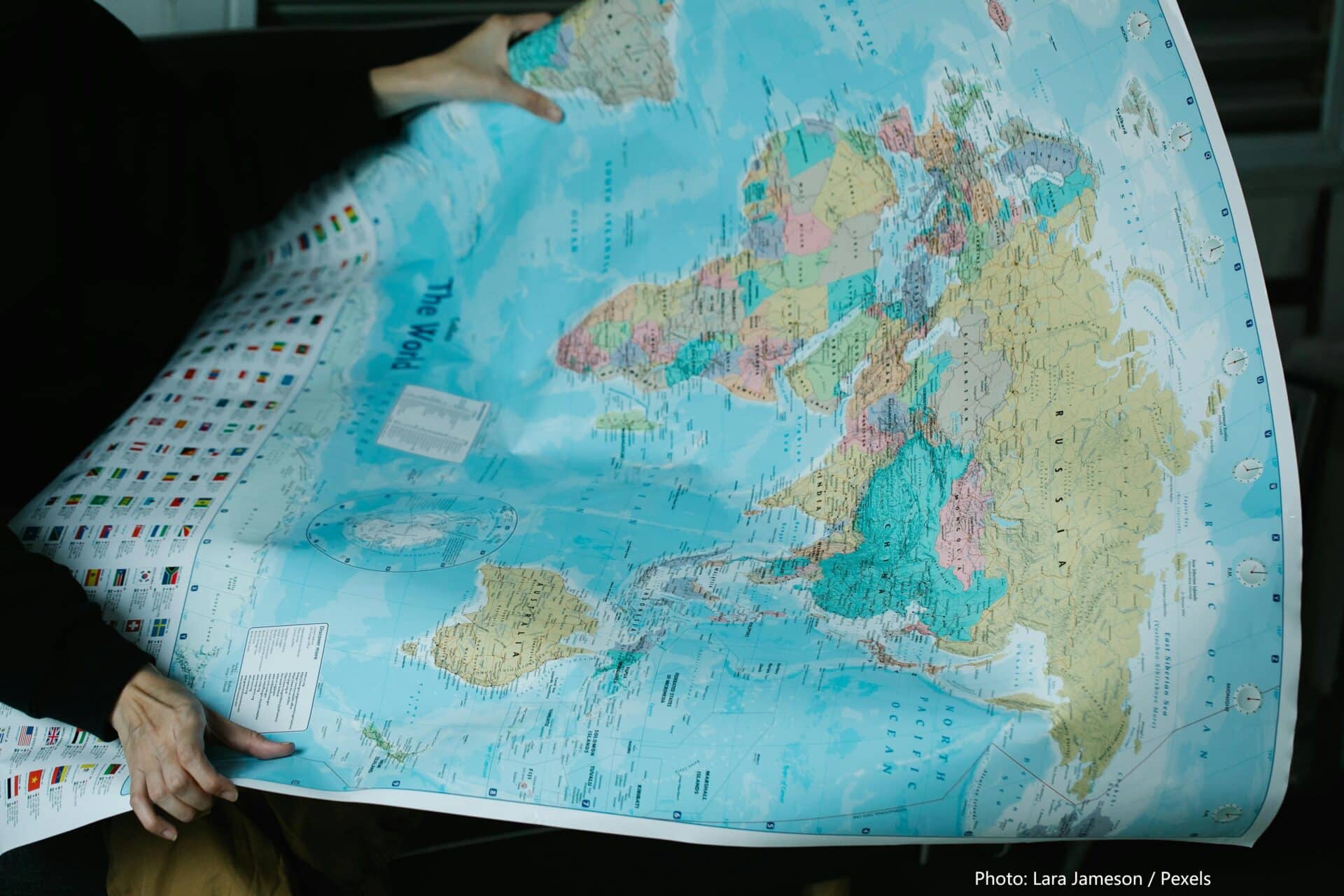The view from Beijing
This article by Bruce Munro was originally published on odt.co.nz on 20 July 2024.
Is China friend or foe? Recently returned from a trip to China that gave unusual access to influential foreign affairs experts, Bruce Munro says there is an intriguing but little-considered lens through which China’s vision of our shared global future must be viewed.
The two young women, splendid in Qing Dynasty costume, stared at the small screen on the back of the tout’s digital camera, oblivious to the laowai, foreigner, taking their photo. We were in the middle of a week that would take us to Shanghai, Beijing, Hangzhou and back to Shanghai; a week of faultless hospitality, seamless propaganda, glorious cuisine and coveted access to some of China’s brightest and most influential thinkers about the autocratic, one-party state’s place in the world.
So, here in the pleasant shadow of the Forbidden City’s outer walls, on the edge of Beijing’s infamous Tiananmen Square, the happy clash of ancient garments and 21st century technology seemed to somehow sum up the contradictions and insights of the past few days’ travel in this country of 1.4 billion people. I was not sure exactly how, but I sensed this scene spoke to one of the central questions I had carried with me from New Zealand.
The first spark of that question had been a Dr Brad Harris history podcast listened to while mowing lawns on a windy Dunedin Saturday afternoon in April. It detailed a chunk of evolutionary theory that had long been part of Russian thinking but had only recently been recovered in the West — symbiogenesis, the observation that life is not only built on competition but also co-operation.
Next, fuel was added by University of Otago professor of foreign relations Robert Patman. Have a look at China’s vision of the future of the international order, he had suggested when I mentioned the possible New Zealand China Council-organised trip.
Then, when the visit was confirmed, preparatory research threw some interesting names and ideas on the growing flames — the early-20th century spread of social Darwinism to China by Russian biologist and anarchist Peter Kropotkin; the recent writing of Fudan University professor of political science Shiping Tang on both international relations and molecular evolution; and a Chinese concept, gongsheng, translated “harmonious co-becoming”.
I had flown out of New Zealand with a blazing question — “Does China’s non-Western theory of evolution, incorporating competition and co-operation, shape its leaders’ plans for the future of our world?”
Thirteen hours later, the question only seemed more relevant as we made our way through customs at Pudong International Airport, Shanghai, and a news alert about a New Zealand survey came up on my phone. The Asia New Zealand Foundation survey of New Zealanders’ perceptions of Asia and Asian people revealed 33% saw China as a friend and 32% thought it was a threat. Is China friend or foe? Did my question offer a way to gain new insight?
By the time we had spent a couple of fascinating days in Shanghai finding our feet, being briefed by a mix of business and consular representatives, doing interviews for other stories and travelling by bullet train to Beijing, I was less certain. I had not yet asked anyone my question, but perhaps it was completely off beam. Maybe I had mounted an ass of an idea and was off tilting at pagodas.

Beijing’s brutalist buildings and wide highways give fitting heft to the capital of the world’s second-largest economy and second-most populous nation. The first appointment of the day continues the theme. In a formal meeting room filled by an enormous boardroom table bearing name tags and teacups emblazoned with golden hammer and sickle, we meet an official from the International Department of the Chinese Communist Party’s (CCP’s) Central Committee. The 205-member Central Committee is a forum for discussing and implementing national policy, second only to the Politburo headed by General Secretary Xi Jinping. The International Department’s task is to develop relations with, and collect information on, foreign political parties and organisations on behalf of the Central Committee.
Our official, experienced and relaxed, relies on few notes to respond to our various questions. It is an insightful education in the thinking of the upper echelons of the Chinese state about itself and the world.
It is clear the Chinese government is a staunch supporter of the United Nations and its founding charter, designed to maintain international peace and security.
“It is important that countries respect the sovereignty of states and territorial integrity,” he says.
This is central to the CCP’s thinking about the long-disputed, legally ambiguous, territory of Taiwan, which recently elected a more independence-minded leader.
“Taiwan is 100% a Chinese internal affair,” the official tells us.
“We have every intention of a peaceful reunification, but we cannot promise not to use force.
“If the international community would like a peaceful situation, then it should be against the separatists.”
The UN Charter also talks about equality and respecting people’s rights.
Yes, he says, human rights are universal. But all countries have room for improvement and China needs to be allowed to do that without it being imposed from outside.
Democracy is not just about voting, we are told by way of justification for China’s one-party system.
“Whole-practice democracy” is the official jargon, meaning this “socialism with Chinese characteristics” government is accountable to its people, not through liberal democratic processes, but through its ability to improve the socioeconomic lives of its citizens.
The UN Charter is referenced again when Russia’s invasion of Ukraine is mentioned. The Charter says states should resolve disputes by peaceful means, our official agrees.
China’s involvement in the Ukraine conflict is made more complex by China’s long history with Russia, the two countries’ lengthy shared border and Russia’s “unique mentality”.
“It feels itself forever threatened”; an insecurity exacerbated by the expansion of Nato.
“If China, as the West demands, cut off Russia, what would be the reaction of Russia?
“It is dangerous to corner a superpower.
“We don’t add fuel to the fire, and we don’t stand idle.”
Reticent about my burning question, I lob the more generic, “What is China’s vision of the future of the world order?”
China benefits from the current system, is the response.
The world order facilitates free, global trade on which the CCP depends to continue providing the health and lifestyle improvements its citizens expect.
“China has no intention of overthrowing the current order.”
That said, improvements are needed, he adds.
“It’s an international rules-based order, but whose rules? The UN Charter should be at its core.”
Globalisation has improved people’s lives but has also increased inequality. The fault is not globalisation but distribution, he asserts.
“We say there is a development imbalance.
“Domestically, countries should have reform for fairer distribution.”
It is talk that China intends to also walk. In recent decades, the number of its citizens below the poverty line has reduced from 60 million to 1.6 million. But affluence has accumulated in some areas, such as cities in the east of the country, more than in others. So, China is now prioritising lifting the living standards of the bottom half.
It sounds good. At the same time, however, this is a surveillance state that uses an estimated 200 million, facial recognition-enabled, CCTV cameras to, among other things, send its citizens fines for jaywalking. It is a nation that has overhauled and ramped up its two million-strong military, with Jinping as its commander-in-chief. And it is a global power whose foreign policy mantra went from Deng Xiaoping’s 1970s “hide your strength, bide your time” to Jinping’s more confrontational “wolf warrior” diplomacy in the pre-Covid decade, only to be replaced with a softer approach again in the past couple of years.
No wonder Kiwis are evenly split between seeing China as a friend and a threat.
What thinking lies deep enough in the Chinese psyche to be an unconscious guide of its goals and actions as the nation inevitably rises on the international stage?
At tomorrow morning’s appointment, I determine, I will ask my question.
Peking University is on the northwestern edge of Beijing’s third ring road, no more than 10km as the red-crowned crane flies from Tiananmen Square and the seat of CCP power. Peking and nearby Tsinghua are the country’s top-two universities, each accepting only the brightest 0.05% of the country’s more than 10 million high school graduates who each year sit the ferociously competitive gaokao national university entrance exam.
In a leafy corner of the Peking University campus, we meet in an upstairs cafeteria with professors, as well as master’s, PhD and postdoctoral students of the international relations department.
Part way through a broad-ranging, two-way, group conversation, I lay out my thesis for their knowledgeable critique.
I have come to realise, I tell them, that Russia and China have had a broader understanding of the theory of evolution than the West. Whereas we focus almost exclusively on the competitive “survival of the fittest”, the East gives at least equal credit to the role of symbiogenesis, the interdependence and even co-becoming seen in, for example, the mutually beneficial relationship between aphids and ants and also in the evolution of mitochondria from free-living bacteria that merged with eukaryotic cells.
In this understanding, “symbiosis is the author, natural selection is the editor”.
Evolutionary biology was then applied to ideas about how societies develop. And I have seen references to these social evolution ideas, as expounded by Kropotkin, a proponent of symbiosis, becoming influential in China more than a century ago.
These biological and social evolutionary frameworks are what Chinese school children have been raised on for generations.
I have also seen signs this approach is perhaps being applied to international relations today, I tell my patient audience. For instance, Prof Tang, of Shanghai’s foremost university, Fudan, is an evolutionary biologist-turned-foreign affairs researcher whose writings include references to the “sometimes competitive and sometimes co-operative interaction” of international politics.
So, I ask, finally reaching my question, does the Chinese understanding of evolution, combining co-operation and competition, shape China’s thinking about how it should interact with the world?
It is Prof Dong Wang, Peking University’s young, rising star of international studies, who answers.
“I think you are very right,” he says.
“The Chinese way of understanding social interaction, including among countries, comes from different cultural roots.
“Confucianism emphasises the importance of harmony … There can be differences, but we are always trying to build harmonious relationships.
“So, we can come from different systems, with different ideology and different history, but still the kind of relationship we should pursue is harmonious.”
And what about the concept of gongsheng — peaceful co-existence and co-becoming? To what extent, I want to know, does that cultural value lie behind China’s foreign policy?
“I think you are right. You are getting to the very heart of Chinese values, actually,” Prof Wang says.
“China doesn’t impose upon, and say ‘you have to accept that otherwise I’m going to sanction you’. That’s American type of diplomacy, not Chinese.
“We really sit down and discuss what joint benefits we can draw out of this and we mutually agree this is the direction to go.”
The confirmation is exciting and satisfying.
So, why is part of me still unconvinced of China’s good intentions?
A couple of days later, back in Shanghai, we are conducting our last interview, at the Shanghai Institutes of International Studies.
Holding the floor is the eloquent Dr Yuqun Shao, director of the Institute of Taiwan, Hong Kong and Macao Studies.
She is hot on what she considers to be the United States’ inflammatory policies towards China.
“The community in Washington thinks China is going to challenge the hegemony of the United States.
“It’s not our strategic goal but the Americans don’t trust us,” Dr Shao says.
“The Chinese say the two countries should have peaceful coexistence, but the US doesn’t believe us.
“They don’t consider our history, our culture, our strategic thinking.
“That’s why we have a lot of perception gaps between our two countries … which make the future very dangerous.”
I suspect the mistrust is because China is so “other”.
From a US or even New Zealand perspective, China’s history, its culture, its ideology is so different. We fear what is different; we easily ascribe to it a malevolent intent that needs to be quashed. Particularly if our mindset is foremost competitive.
I look again at the photo of the two young women in Qing costume. The youth of China are proud of their country; a pride expressed in identification with a culture that for many centuries has valued harmonious co-existence. That is an “other” worth welcoming.
I don’t want to pretend China is even close to being a utopia. Nor the West. But I do think, along with healthy competition, there is scope for some symbiogenesis, some co-becoming.












 MENU
MENU
